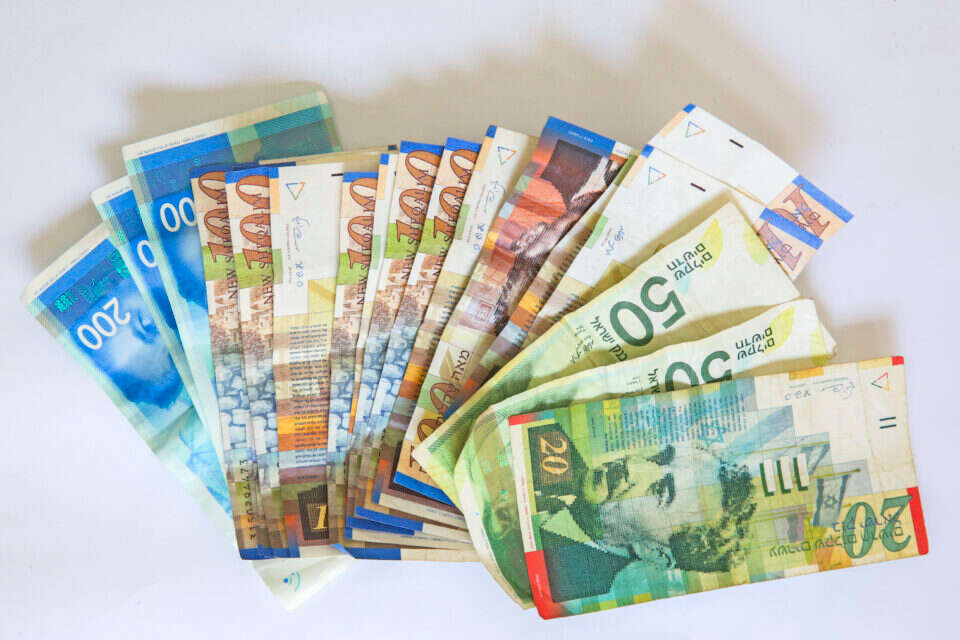The public pressure exerted on the banks worked, and some of them are already offering interest rates of up to 3% per year on deposits to the public.
This is a solid savings alternative that is not bad, which makes it possible to moderate the effects of the rising price trend in the economy (inflation).
However, one should take into account the taxation on the deposits as well as the fact that sometimes the money has to be "locked up" in the bank for an extended period of time that is defined in advance.
So how do we choose a deposit that suits our needs?
The banks offer different types of deposits with a variety of conditions and fine print, and it is easy to get lost in them.
We helped Eric Chikotai, ONE ZERO's VP of banking, to bring you some important tips for choosing a savings plan.
Choose a deposit according to the level of need to use the money and check the existence of exit fines:
The meaning of closing money in a deposit is that the customer benefits from interest in exchange for waiving the use of the money for a predetermined period of time (the bank, for its part, lends the money to a third party and benefits from the difference in interest rates).
The rule of thumb is that it is desirable to leave liquid money for any trouble that will not come in the scope of six months of expenses.
Such liquid money is recommended to be closed with a daily deposit (can be withdrawn every day) or monthly (can be withdrawn once a month at a specified exit station) and not beyond that.
It is important to understand that withdrawing the money outside the exit station means of course the loss of interest, but some banks also charge an "exit fine" of several tens of shekels for withdrawals outside the station.
That is why it is important to check with each bank if there is such a fine.
Compare the interest rate according to the deposit period:
The longer money is locked up for a longer period of time, the more the expectation is to receive a higher interest rate from the bank for our willingness to give up the use of money.
It is not correct to compare a one-year closed deposit with a two-year closed deposit.
By definition, the interest on a deposit closed for a longer period should be higher than a shorter term deposit.
It is important to compare the interest rate offered by each bank according to the duration of the period in which the deposit is closed and according to the exit stations.
These are the questions you should ask:
What happens to the interest if you withdraw the money before the time?
Are there exit stations?
When withdrawing at the station do you get the full interest accrued?
Is there an exit fine for withdrawing at a non-station?
Choosing a fixed interest deposit means waiving interest rate increases in the economy, however they may be:
Banks have recently begun to offer deposits with relatively high interest rates, but in a significant number of cases these are deposits with a fixed and not variable interest rate, i.e. those that do not benefit from interest rate increases in the economy.
A fixed interest deposit must offer interest compensation for the fact that it does not allow the enjoyment of interest rate increases in the economy and therefore must never offer a higher interest rate than a corresponding deposit (for the same period) with a variable interest rate.
It is understood that the longer the deposit is closed for a fixed interest period, the interest compensation compared to a variable interest deposit should be higher.
Therefore it is important:
Compare interest rates between similar types of deposits (variable to variable and fixed to fixed).
check how long the money is closed for and demand higher compensation in a fixed interest deposit the longer the period is.
The rule of thumb is that a deposit with a fixed interest rate for a period of one year should offer about 1% more than a corresponding deposit with a variable interest rate.
Check if the interest rate offered is given to everyone or only under certain conditions:
There are quite a few publications about deposits with interest rates of this and that, but these publications are often accompanied by fine print, such as the stipulation of an amount of NIS 100,000 or more in order to benefit from the high interest rate.
It is important to make sure before opening the deposit that the interest on it is not conditional on a certain minimum deposit.
were we wrong
We will fix it!
If you found an error in the article, we would appreciate it if you shared it with us

